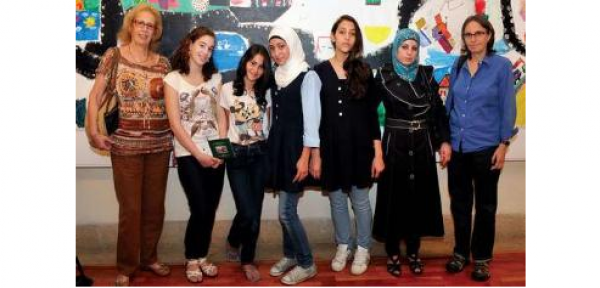
By BEN HARTMAN LAST UPDATED: 12/18/2011
UCLA sociology professor Walter R. Allen says affirmative action programs in the United States are a model Israel.
The success of affirmative action programs in the United States presents a model for how such programs can work in Israel, a visiting American academic said over the weekend.
University of California at Los Angeles sociology professor Walter R. Allen was in Israel last week as part of a Fulbright scholar exchange program at the Mofet Institute, and described what he said was the striking diversity of Israel.
“Israel is clearly a unique situation, but there are some parallels: For one thing the diversity of Israel is quite striking. And I happen to come from a state that has great diversity in ethnicity, culture and economic groups.”
Allen, considered an expert on affirmative action, among other issues, was visiting Israel the same week that US President Barack Obama issued a new legal guidance that will allow post-secondary institutions to consider race as an admittance criteria, rolling back Bush administration actions that ruled out race as a criteria.
Allen said that one of the parallels between Israel and the US is this very diversity, which he says presents “the challenge of integrating those different groups in ways that empower the different groups and create opportunities for the different groups to interact in ways that are productive and beneficial.”
He said such diversity in society must be integrated into academics, saying “one cannot have academic excellence without incorporating diversity into an institution of higher education, and this is part of living in a global world where different groups are interacting together.”
In regards to how such programs have benefited the United States, Allen said “you can see it in the expansion of the black and Latino middle classes, the presence of women in our institutions, and the fact that it has generally opened doors and made possible the inclusion of people who under business as usual would not be included.”
He said that critics of such programs, who often say they let in weaker candidates with lower test scores “are not looking at the evidence or being very honest in their assessment of it, because getting in the door is only the first step. It opens doors, but it doesn’t determine what you do once you get in that door.”
He added, “the fact is that human beings are a composite of their experiences, so in the same way you can look at gender or economic status [as a factor] you can look at race. And in our country race affects the course of someone’s life.”
“Disqualifying students who have potential but haven’t been in situations to develop that potential is unfair and a waste of human potential when our society needs that talent,” Allen said, adding that using test scores to exclude students who haven’t been enrolled in high-performing schools growing up is part of a “vicious cycle” that must be broken by taking other aspects of the student’s potential into account.
In regards to the Israeli teachers he met during his visit, Allen said that “many of them are clearly able to do see parallels [between Israel and the US] and are committed to recognizing talent and developing it and identifying students with talent.
“I saw many programs at universities for kids who – for one reason or another – didn’t succeed in high school or a matriculation [certification] and were given a transition year and then moved into the regular fouror five-year program, and that’s a classic affirmative action program, making allowances for a kid who stumbles.
And seeing they have potential if we help them overcome these stumbling blocks.”
He also spoke of visiting a high school in Beersheba that offers science enrichment programs for Beduin students, which he called “a classic model of a school exposing students to a school and opportunities they would have never been exposed to otherwise.”
“These are so valuable because kids that would have been a lost resource are reclaimed.”
